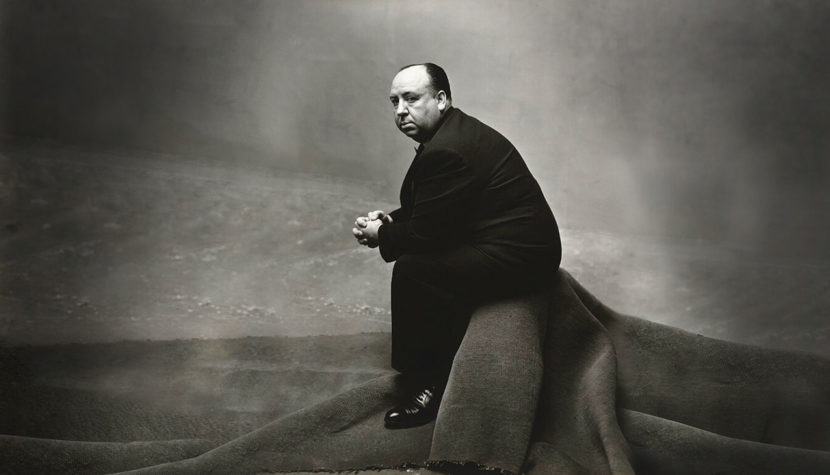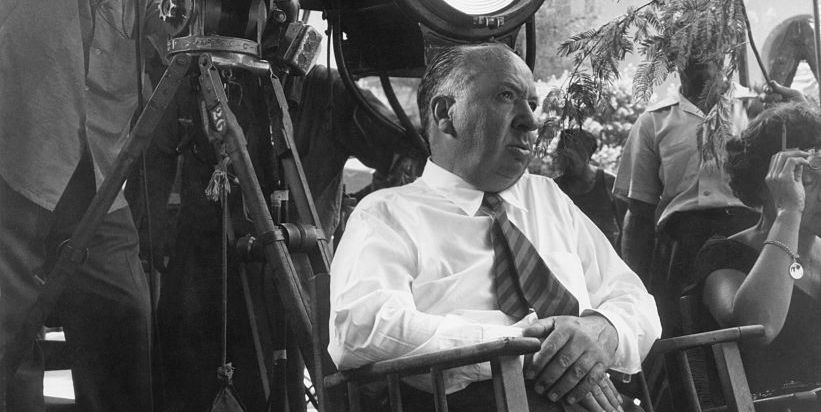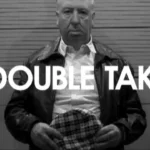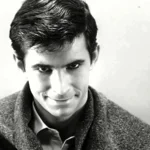My name is ALFRED HITCHCOCK. The resurrected master of suspense

I love Mark Cousins. His The Story of Film: An Odyssey was like an extra subject in film studies for me – a 15-hour lecture with my favorite lecturer. A man living in his own world, a bit of a weirdo, but at the same time a real enthusiast who can effectively infect with his passion; he is helped in this by an unusual tool – his voice. Deep, mesmerizing, marked with a characteristic Scottish accent. Cousins uses it judiciously: he uses pauses often, weighs every sentence, leaving some questions unanswered. In this way, his documentaries, which are in fact full-length video essays, gain a truly poetic mood – rhythm plays a key role in them. Not only images, but also words.
Disappointment?
So I was quite disappointed at the very beginning of Cousins’ latest project – the documentary My Name is Alfred Hitchcock. Disappointment and surprise at the same time; two things so often intertwined. The narrator of the film turned out to be not Mark Cousins, but Sir Alfred Hitchcock himself. Or so we might think. In fact, Cousins wrote the narration and then hired British actor Alistair McGowan to voice the master of suspense. It’s not too hard to figure out the trick – as soon as the fake Hitchcock starts to relate to the present, and it happens very quickly, the viewer senses the scam. At this point, we are given a choice: either we trust the creator and let ourselves be led by the nose for two hours, or we reject the experiment, sensing falsehood and insincerity in it. If we choose the second of these options, the screening is lost for us – it’s better to leave the cinema, which a few people did in front of my eyes.

Let’s assume, however, that we stayed in the cinema chair. This is (not)Hitchcock takes us through six chapters of a story about his (not)his own work. Escape, lust, loneliness, time, fulfillment and height – through such filters Cousins looks at the work of the director of Rear Window. And he watches, as is his habit, in a careful and unconventional way. He sees unobvious connections between Hitchcock’s films: between the shower in Psycho and the phone booth in The Birds, the cornfield in North by Northwest and the sea in To Catch a Thief. We will not hear in his documentary about the rules of suspense and what exactly MacGuffin is all about. The basics are hidden somewhere between the lines. Instead, we will learn that one of the most effective methods of “drawing” the viewer into the presented world is the shot of the door. The camera follows the hero into the building, and then the actor marks the closing of the door with his hand – the sound and the viewer’s imagination complete the rest. A simple yet effective method: the escape route was cut off, we entered the world of the film together with the protagonist.
Another example, straight from the chapter on time: What do you do when the hero is in a hurry? Hitchcock’s recipe: slow down time, throw some solid blocks under the hero’s feet. A fragment from M for murder then appears on the screen. A man has to call his apartment to signal the hit man he hired to murder his wife. However, his watch refuses to obey. At the last moment, he realizes that the appointed hour came – he goes to the telephone booth, which turns out to be busy. Time works against the protagonist, but in favor of the director – it helps to engage the viewer, to bolt him to the chair. The viewer should have as much information as possible: the more aware he is of the stakes, the more tension accompanies the scene. Hitchcock-Cousins doesn’t say it directly, but that’s what suspense is all about, the opposite of surprise, or, as the British director says in an interview with François Truffaut, “the most appropriate means of keeping the viewer’s attention.”
Related:
Master of Puppets
Because that’s what it’s all about – keeping the viewer’s attention, the perverse pleasure of power over the viewer. The narrator emphasizes this fact many times, assuring us that he became a director for this very reason. “To control your feelings and emotions.” Immediately, a scene from the film biography of Hitchcock, starring Anthony Hopkins, comes to mind. During the premiere of Psycho, the hero leaves the cinema hall to listen to the screams accompanying the famous murder of Marion Crane. His eyes sparkle with excitement, his hands spontaneously begin to orchestrate the screams coming from behind the closed door. The smile that ends the scene is the smile of a demiurge – a man who keeps his followers and their emotions in check.

It is a pity that the fake Sir Alfred, created by Cousins and McGowan, does not have a similar skill set. His narration, although full of interesting observations, gets boring very quickly. It’s monotonous, full of repetitive phrases, bad jokes. A Hitchcock who criticizes smartphones and constantly infantilizes his audience is not my Hitchcock. I understand the principles of Cousins’ experiment, but I don’t share his vision. Before I started writing this review, I watched an excerpt from an interview with Hitchcock by the reliable Dick Cavett. It’s hard to take your eyes off this conversation. Why? Probably because we are dealing with a living man, unpredictable and extremely intelligent. At the same time impenetrable and bursting with anecdotes. The Hitchcock of Cousins’ documentary is a mental construct with limitations. He will never go beyond the analytical competence of his creator, he will never say a word more than the lector would like. The puppet master turned into a puppet. Sad thing. For this reason, I prefer Mark Cousins to narrate his films: in the first person, without hiding behind figures from the past. His best document remains the most personal one: made in the period just before and immediately after eye surgery: The Story of Looking.
I love Mark Cousins. After all, I owe him a significant part of my film education. And so it is with a heavy heart that I admit that My Name Is Alfred Hitchcock is only a half-successful film. Packed with interesting, penetrating observations, which, however, are hard to listen to when served by an exaggerated, schoolboy version of Alfred Hitchcock. If Cousins wanted to prove that the British cinema is immortal, it was enough to show us fragments of his films and frame them with his own commentary. There is one basic problem with corpses unearthed after forty years: they smell terrible and look worse than Norman Bates’ mother.





